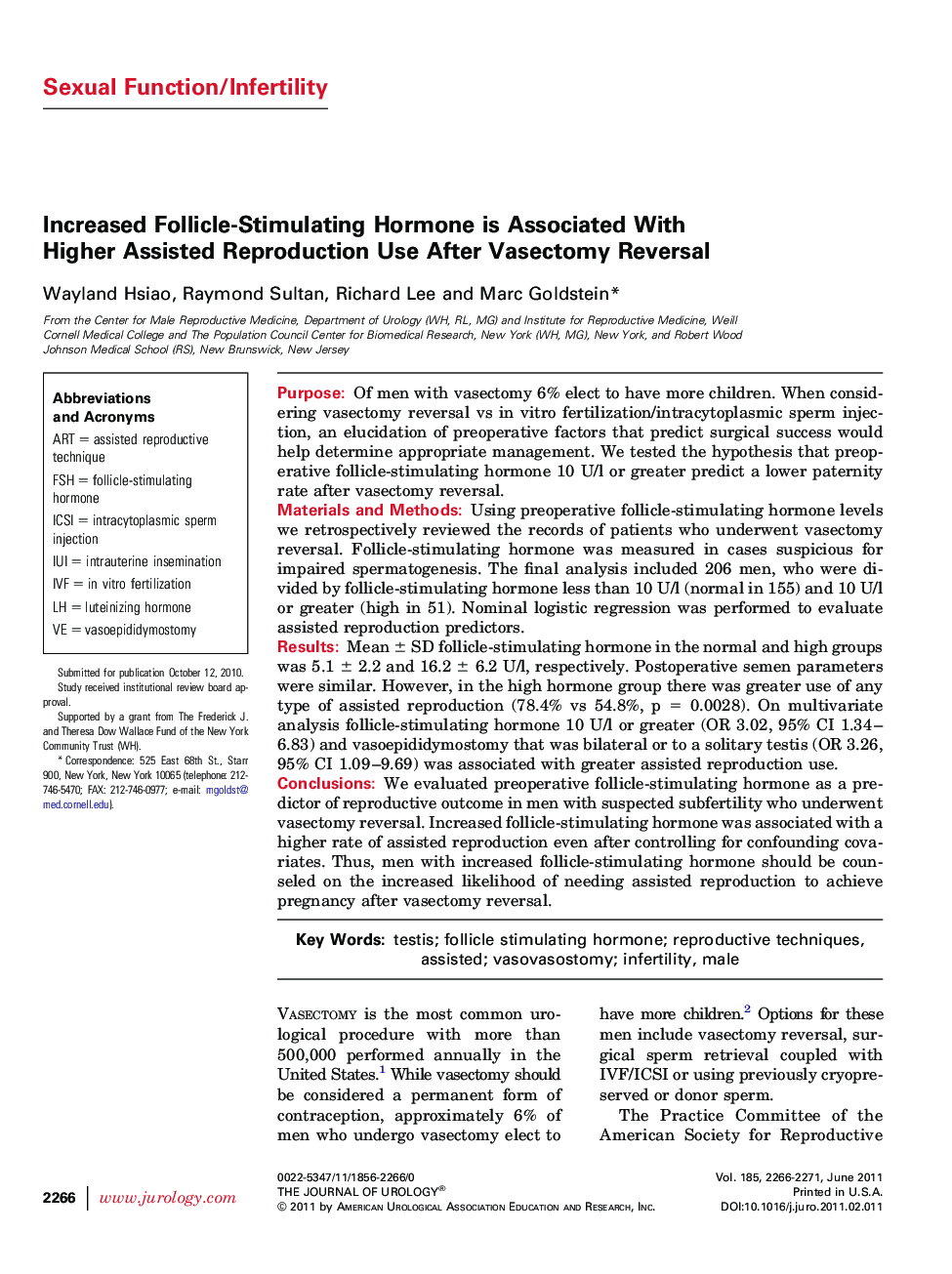| کد مقاله | کد نشریه | سال انتشار | مقاله انگلیسی | نسخه تمام متن |
|---|---|---|---|---|
| 3869878 | 1598948 | 2011 | 6 صفحه PDF | دانلود رایگان |

PurposeOf men with vasectomy 6% elect to have more children. When considering vasectomy reversal vs in vitro fertilization/intracytoplasmic sperm injection, an elucidation of preoperative factors that predict surgical success would help determine appropriate management. We tested the hypothesis that preoperative follicle-stimulating hormone 10 U/l or greater predict a lower paternity rate after vasectomy reversal.Materials and MethodsUsing preoperative follicle-stimulating hormone levels we retrospectively reviewed the records of patients who underwent vasectomy reversal. Follicle-stimulating hormone was measured in cases suspicious for impaired spermatogenesis. The final analysis included 206 men, who were divided by follicle-stimulating hormone less than 10 U/l (normal in 155) and 10 U/l or greater (high in 51). Nominal logistic regression was performed to evaluate assisted reproduction predictors.ResultsMean ± SD follicle-stimulating hormone in the normal and high groups was 5.1 ± 2.2 and 16.2 ± 6.2 U/l, respectively. Postoperative semen parameters were similar. However, in the high hormone group there was greater use of any type of assisted reproduction (78.4% vs 54.8%, p = 0.0028). On multivariate analysis follicle-stimulating hormone 10 U/l or greater (OR 3.02, 95% CI 1.34–6.83) and vasoepididymostomy that was bilateral or to a solitary testis (OR 3.26, 95% CI 1.09–9.69) was associated with greater assisted reproduction use.ConclusionsWe evaluated preoperative follicle-stimulating hormone as a predictor of reproductive outcome in men with suspected subfertility who underwent vasectomy reversal. Increased follicle-stimulating hormone was associated with a higher rate of assisted reproduction even after controlling for confounding covariates. Thus, men with increased follicle-stimulating hormone should be counseled on the increased likelihood of needing assisted reproduction to achieve pregnancy after vasectomy reversal.
Journal: The Journal of Urology - Volume 185, Issue 6, June 2011, Pages 2266–2271